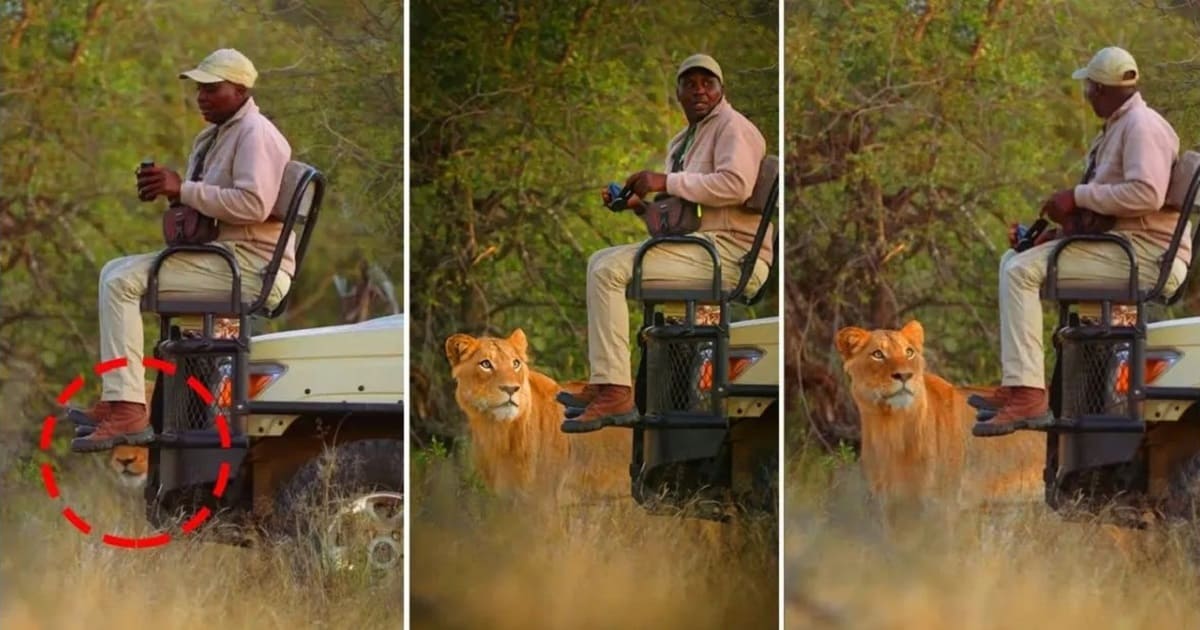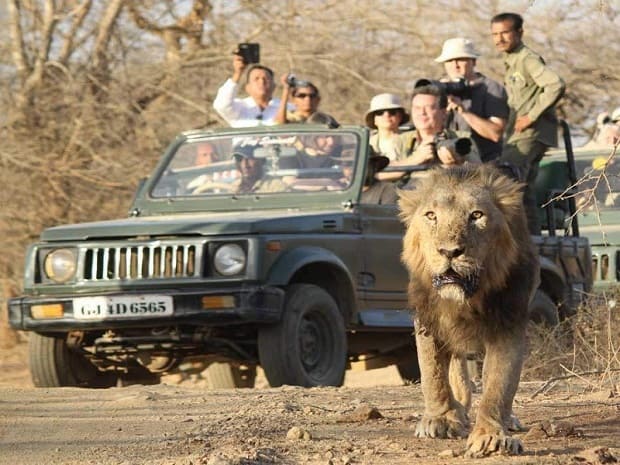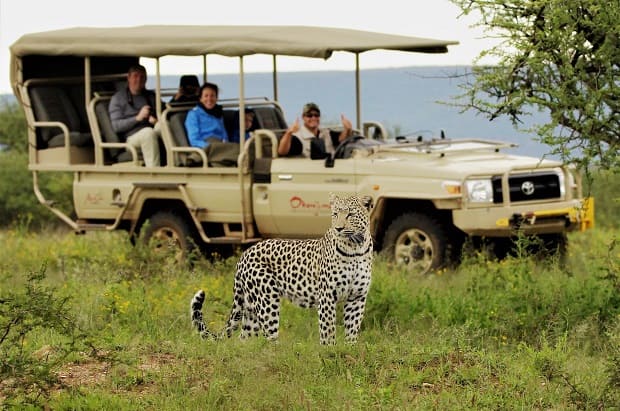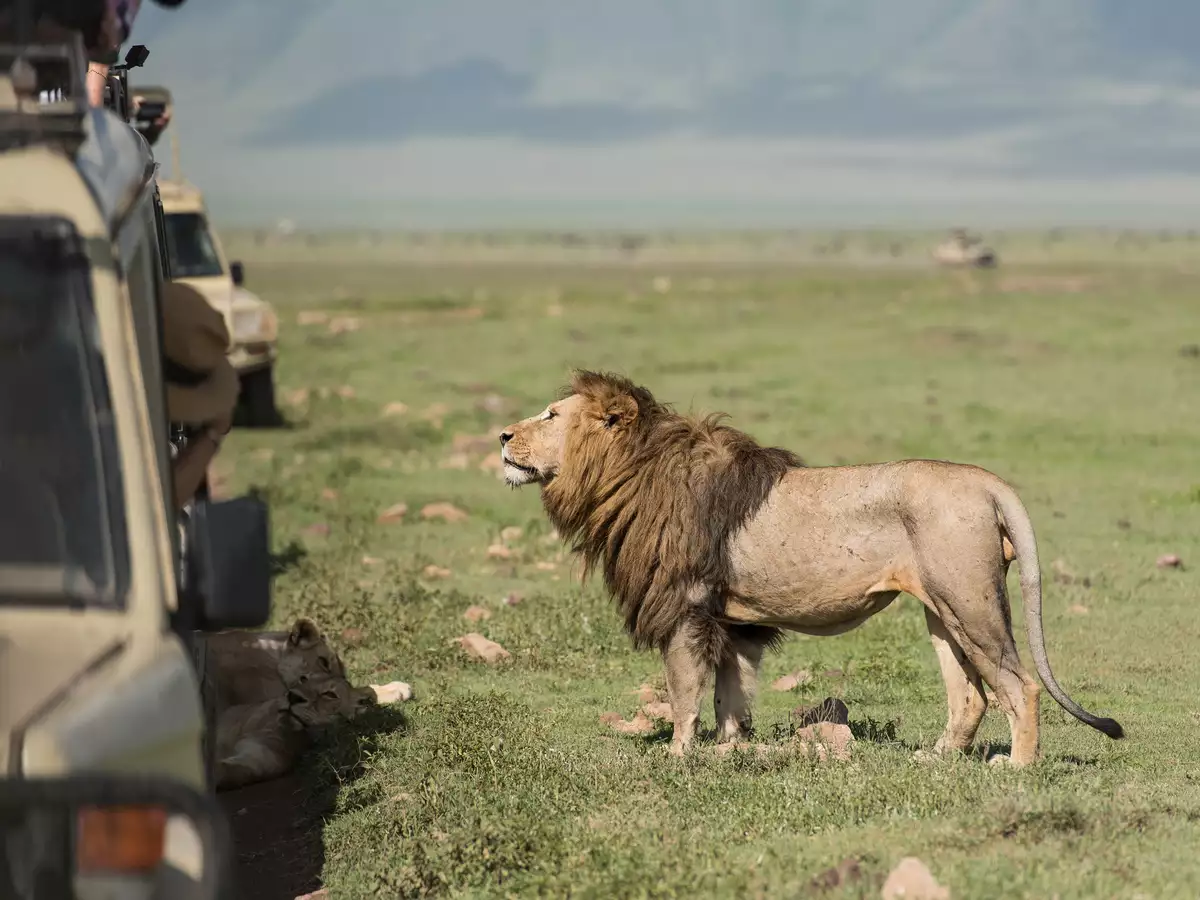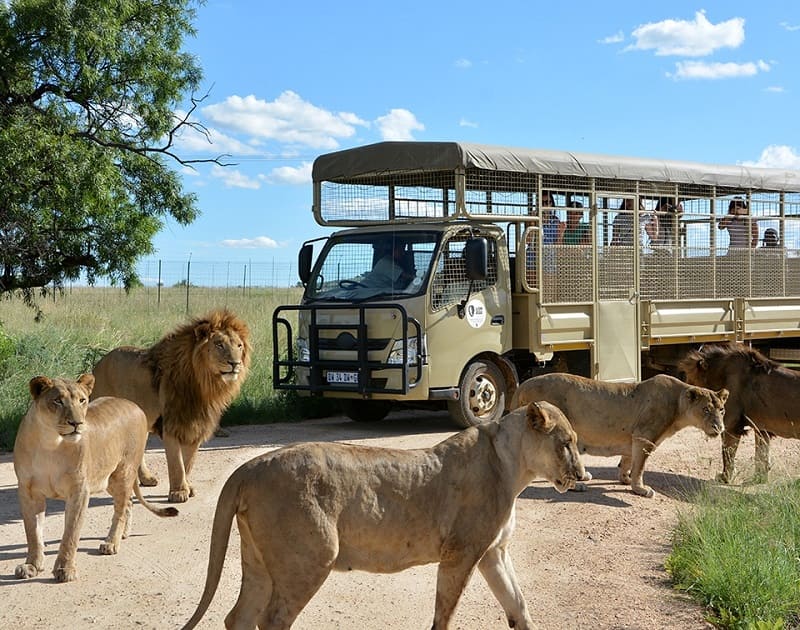Lion safaris are an exhilarating and unique experience for both nature lovers and risk-takers. These safaris offer visitors the opportunity to observe lions, the king of the jungle, in their natural habitat. And learn more about their behavior, habits, and the challenges they face in the wild.
The ability to witness lions in their natural habitat, where people may examine their behavior and interactions with other animals while remaining secure in a safari vehicle, is one of the key advantages of these safaris.
ADVERTISEMENT
However, not many know why lions don’t attack Safari vehicles despite the fact that they love to hunt and don’t love foreign interference in their habitat.
Wild animals like lions assault people and automobiles. Many times, people narrowly avoid danger, but there have also been instances where people were severely injured as a result of animal assaults. However, at jungle safari parks, visitors utilize open jeeps to get up close to wildlife, which is very uncommon.
ADVERTISEMENT
However, there are interesting reasons why it happened. A video uploaded by WildThing on YouTube perfectly explains why lions or other predators from the cat family do not attack people in a safari vehicle.
Factors behind why lions don’t attack safari vehicles
1. Jeep’s design
The jeeps employed at safari parks are open-air vehicles with a 360-degree field of vision for visitors. As a result, animals can see people and vehicles as a single, huge thing. Animals are less likely to become violent when people are seated inside a moving vehicle because they see them as components of the bigger thing.
2. Preparations from the side authorities
Animals can perceive visitors as different individuals and attack if they step outside the car or stick their heads out. Yet, these events can be easily avoided because of the planning done by the park authorities. Safari vehicles are driven close to animals to help them get used to the presence of people and vehicles. Due to this, over time, animals gradually get used to the cars and stop associating them with food or prey.
ADVERTISEMENT
3. Energy saving
Animals do not want to spend a lot of energy following a huge item that carries a danger of damage. Thus, the size of the safari jeeps further discourages them from attacking.
Things to do when a lion shows signs of aggression
It is advised not to panic and speed away from a lion or any other large cat that displays signs of aggression because these creatures frequently chase their target. Drivers of skilled safari vehicles are prepared to act appropriately under extreme circumstances.
However, if you are approached by an elephant or rhino, the best course of action is to drive away as quickly as you can.
Private automobiles are permitted in certain wildlife parks outside of India. It is advised to keep the windows and doors locked since wildlife may try to break in or approach too closely in search of food.
ADVERTISEMENT
While going on a lion safari may be an amazing experience, it’s vital to keep in mind that these animals should always be treated with respect and caution. At the end of the day they are wild creatures. To guarantee the safety of both themselves and the animals, visitors should abide by the rules and directions given by the safari operators.
Also read: Ever Wondered Why Dogs Bark And Chase After Moving Vehicles? Here Is The Answer.

